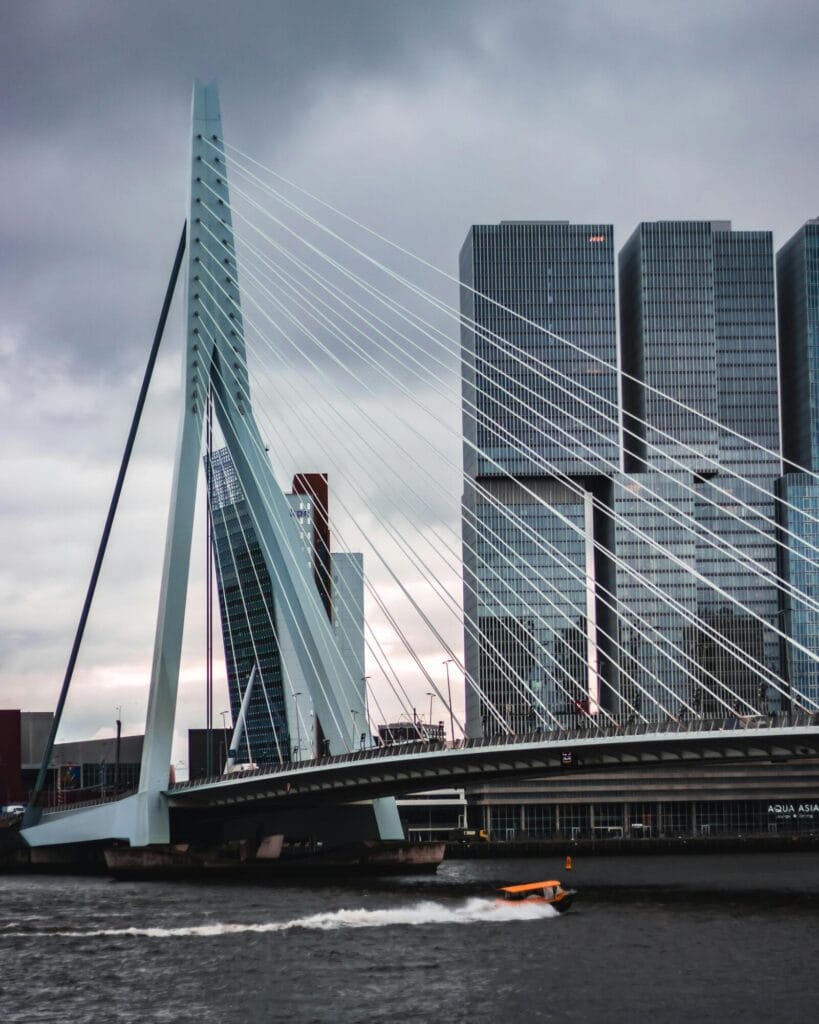Smart automation in a complex industry: how to make ship management and maintenance more efficient with low-code
19 September 2024 • Blog

Smart Maritime: How Low-Code is Transforming the Shipping Industry
The maritime industry is moving full steam ahead towards smart maritime—leveraging technology to make shipping smarter, safer, and more sustainable. The advantages of low-code are well known, but how can this technology support the maritime sector in practice? Let’s explore real-world applications at Van der Loo Yacht Interiors, Heinen & Hopman, and Royal IHC.
Van der Loo Yacht Interiors: Enhancing Efficiency with Low-Code
Shipbuilding is a complex process. Nearly every ship requires customisation, technical intricacy is high, and expertise across multiple disciplines is essential. Additionally, costly materials and specialised parts are used, making shipbuilding an expensive endeavour where errors and inefficiencies can lead to significant budget overruns.
To keep production running smoothly, real-time insights into work progress and material usage are crucial. Low-code applications provide a solution by integrating seamlessly with existing IT landscapes, offering shipbuilders and their clients 24/7 visibility into the status of ship construction.
Take Van der Loo Yacht Interiors, for example. This specialist in luxury yacht interiors aimed to reduce waste of valuable materials. Partnering with Ciphix, they developed “Furniture Control,” (read the case here) a low-code app that tracks repair work, identifying patterns and inefficiencies. By providing deeper insights into errors, the app enables Van der Loo to optimise production processes and quickly coordinate responses with the relevant departments.
Heinen & Hopman: Automating Complex Processes with Low-Code
Most shipyards already recognise the value of automating manual processes. However, streamlining the highly specialised activities within the maritime sector is challenging, as off-the-shelf software is rarely available, and existing systems often fail to meet the industry’s unique needs.
Low-code apps offer a tailored solution, enabling rapid custom development with robust offline and online functionality—crucial for both remote monitoring from the quay and onboard operations.
At Heinen & Hopman, a leader in marine climate control systems, low-code automation solved inefficiencies in verifying system performance. Previously, the process was prone to errors and valuable data was often lost.
With a newly developed low-code app, employees can now capture and analyse detailed system measurements, ensuring adjustments are recorded, reviewed, and approved directly within the platform. The app also standardises measurement recording, promoting consistency and reducing human error. Check the case.
Royal IHC: Boosting Efficiency in a Complex Maritime Environment
Complexity can hinder agility, posing a risk to maritime companies that must respond swiftly to evolving regulations and customer demands. Low-code technology addresses this challenge by enabling rapid modifications to existing applications, making it easier to adapt to new requirements.
Royal IHC implemented low-code as part of a major digital transformation initiative (read it here), developing multiple low-code applications. One key solution, the IHC Optimus app, allows the company to remotely monitor ship conditions. By continuously tracking parameters like vibration and temperature, the system detects early signs of failure. With 24/7 monitoring, IHC can conduct immediate maintenance when anomalies arise, minimising downtime and improving operational efficiency.
Low-Code: A Game Changer for Smart Maritime
Henry Kraaijenbos, Partner at Ciphix, highlights the impact of low-code:
“Low-code is perfectly suited to increasing efficiency in complex environments like the maritime manufacturing industry. It unlocks information from legacy systems, digitises paper-based or Excel-driven processes, and provides round-the-clock visibility—helping the maritime sector cut costs and operate more efficiently.”
Ready to Set Sail Towards Smart Maritime?
Are you struggling with challenges such as difficult-to-automate manual processes, information trapped in outdated systems, or an IT landscape that stifles innovation? Low-code offers practical solutions tailored to the maritime industry’s unique needs.
Wondering how we can help your organisation navigate the journey to smart maritime? Schedule an introductory meeting.
Related
We will help you further!
Replace outdated systems, digitize complex business processes and accelerate innovation.



